How to eliminate st
페이지 정보
작성일2025-02-03본문
Employing the Balanset-1A System
Equipment Preparation
- accelerometers, laser rpm sensor, mounting stand, software application, and additional tools.
- Connect the device to your PC using the USB interface and confirm the software installation.
Setting Up the Sensors
- Fix the accelerometers securely to the machine's structure in locations where vibrations are most prominent, ideally near the bearings.
- Position the laser tachometer (phase angle sensor) so that it is aimed at the rotor. Attach reflective tape to the rotor for accurate phase angle reading.
Software Startup
- Initiate the Balanset program on your computer.
- Choose the correct balancing method (single or two-plane) according to the rotor configuration and the balancing task.
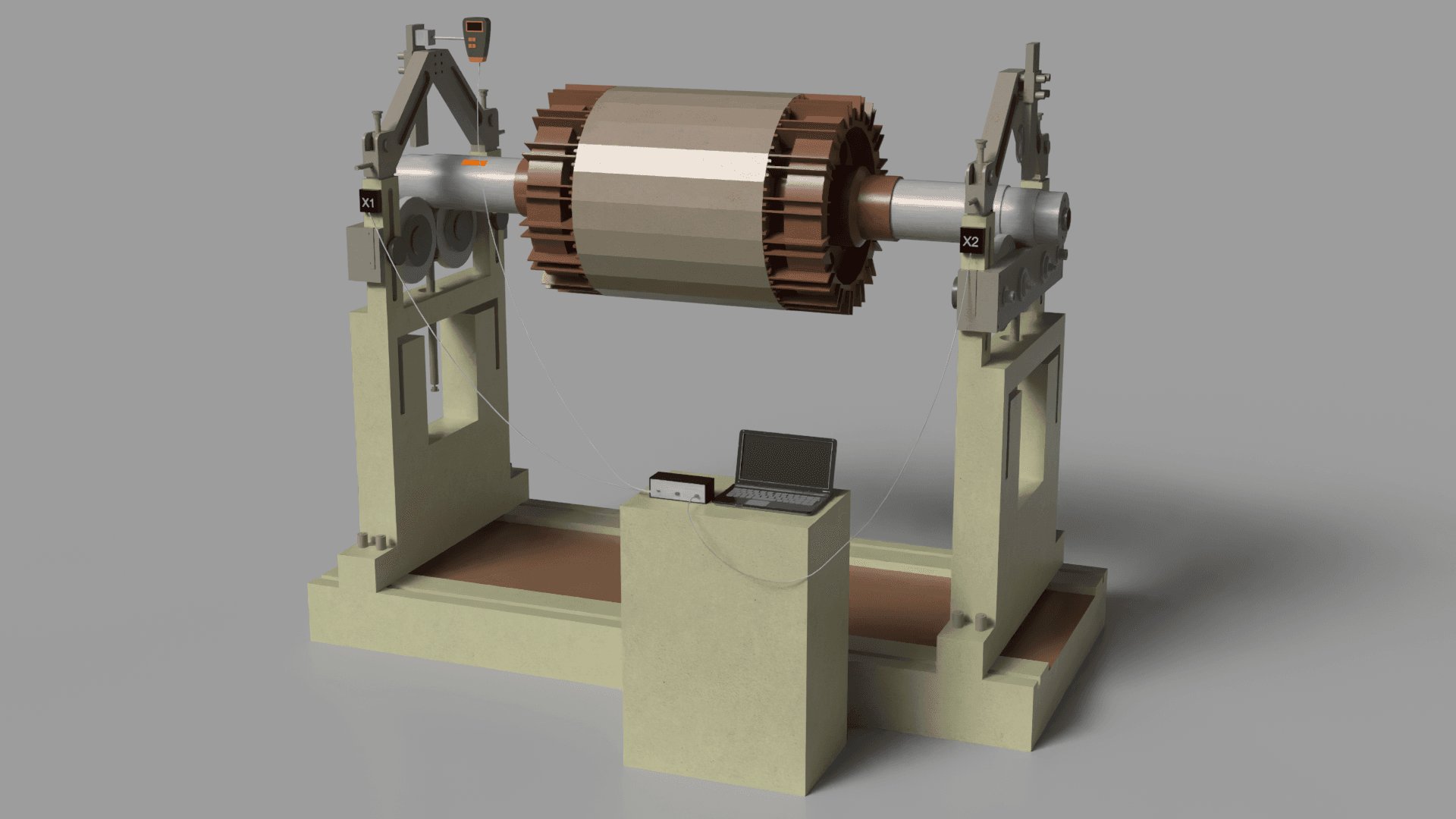
- Bring the rotor to its normal operating rotational frequency.
- The program will record the vibration amplitude, rpm, and phase, providing a baseline measurement of the existing imbalance.
Attaching the Trial Weight
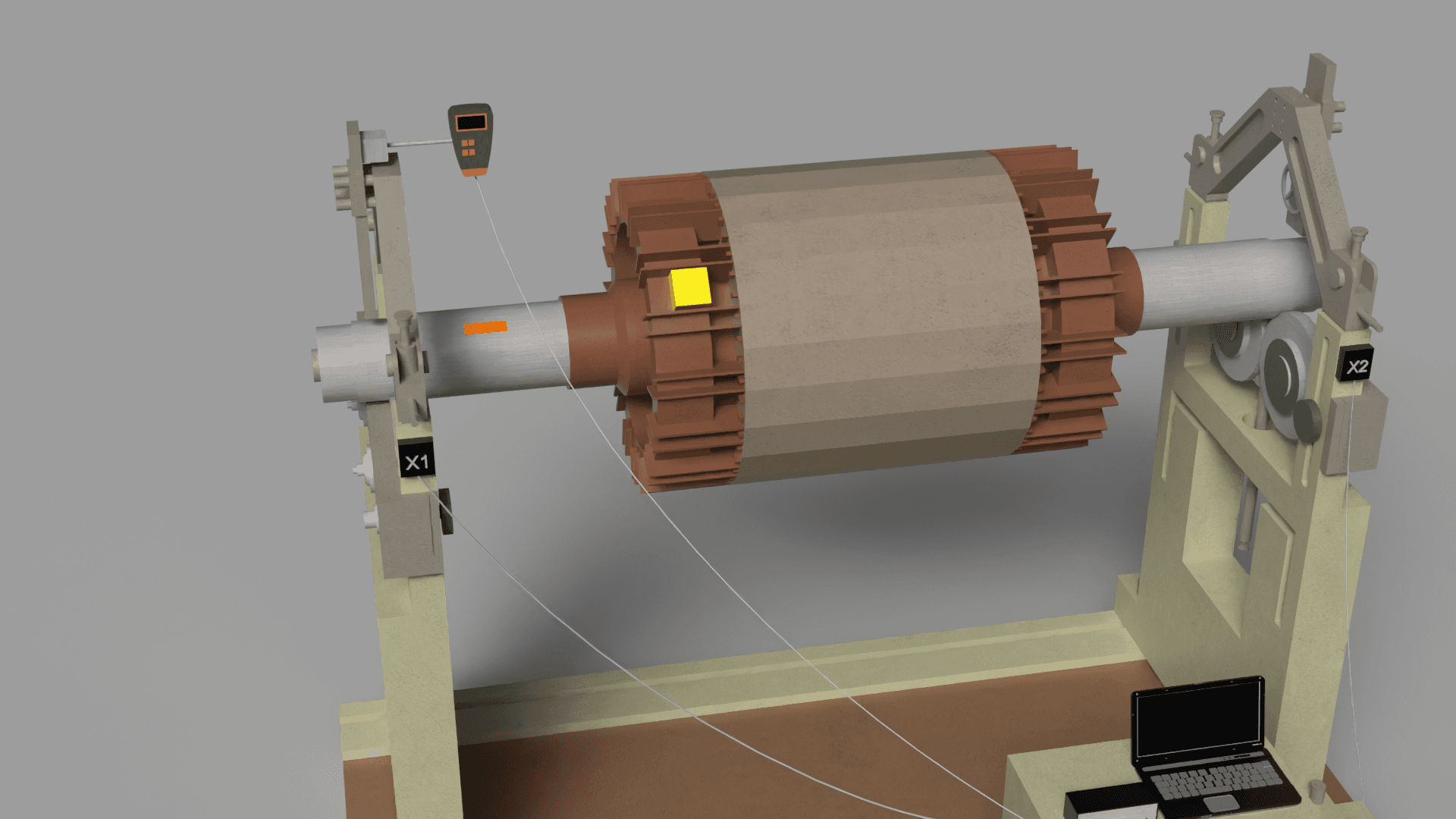
- Halt the rotation and mount a test weight at a designated position on the rotor, with the weight's value entered into the software (usually in grams).
- Run the rotor again, allowing the software to measure the effects of the trial weight on vibration and phase.
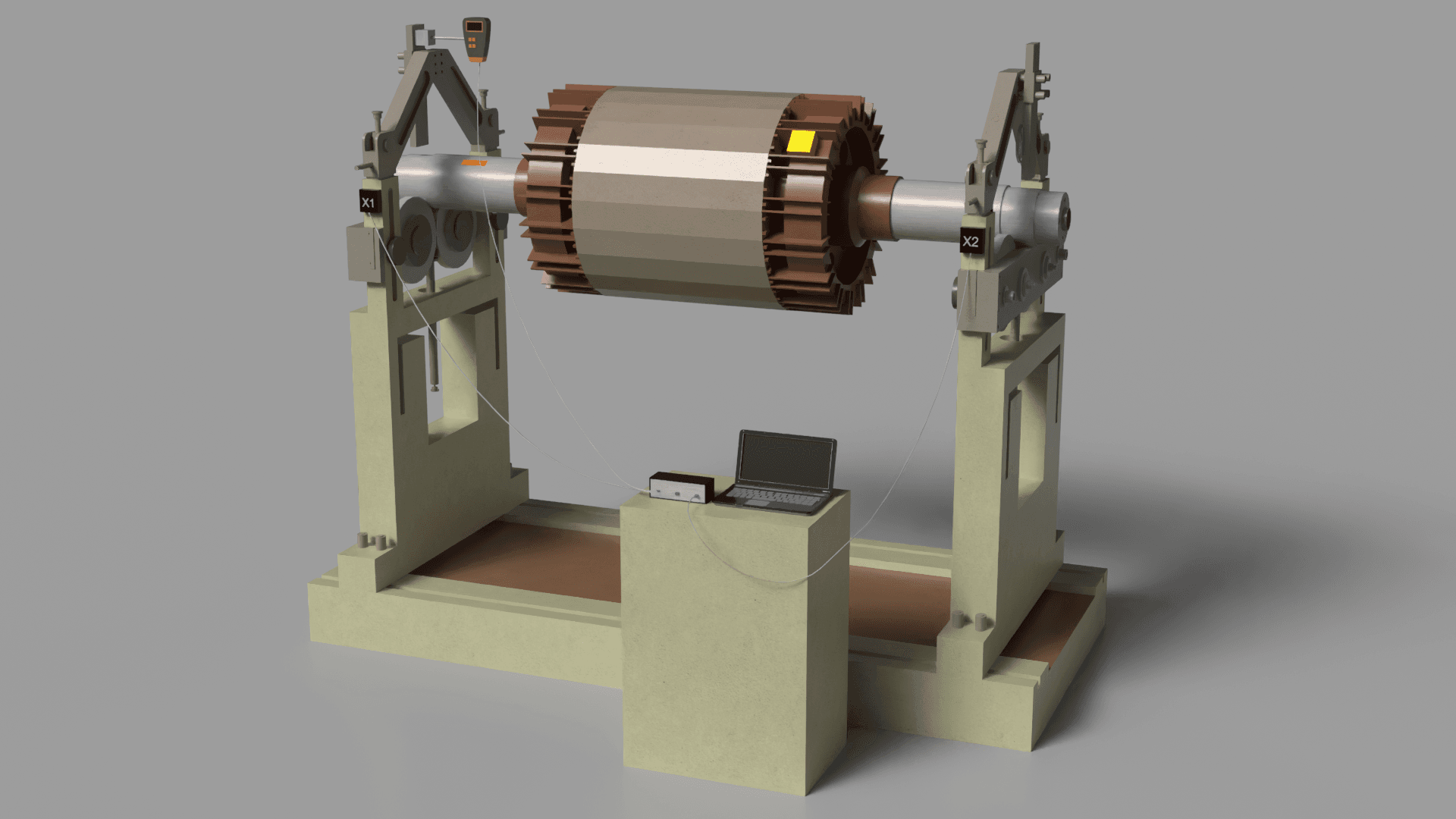
Calculating the Correction Weight
- Using the acquired measurements, the program automatically determines the required corrective weight's mass and angular position.
- The calculated values are presented on-screen in both numerical and graphical formats.
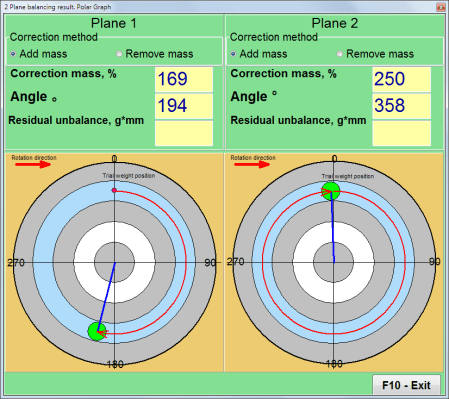
Mounting the Compensating Weight
- Install the correction weight on the rotor according to the software's calculations.
- Periodic checks can be performed to ensure the balancing procedure is effectively reducing the vibration.
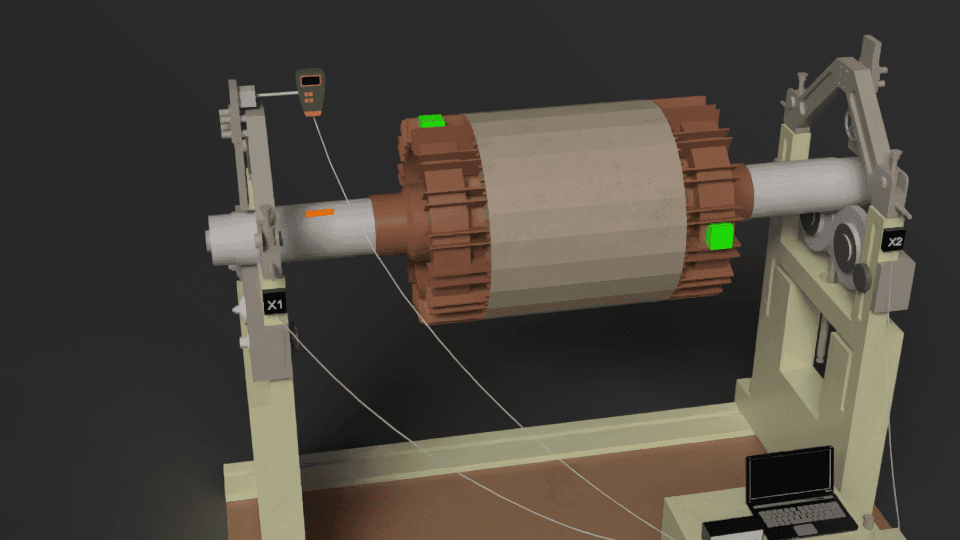
Final Check and Balance Confirmation
- After installing the correction weight, run the rotor again and check the residual vibration level.
- If the measured vibration falls within the tolerance defined by ISO 1940, the balancing process is considered successful.
- If the vibration is still outside acceptable limits, reiterate the process and fine-tune the compensating weight.
Generating a Documentation of the Balancing Results
- The program stores the balancing data, allowing you to generate and print a comprehensive report including vibration measurements, corrective weight details, and its angular placement.
Final Recommendations
- Ensure all applied weights and attached sensors are firmly fixed in their designated positions.
- Check that the rotor's rotation is smooth and free from undue noise or vibration.
- If the rotor operates within a larger assembly, check the functionality and interplay of all interconnected parts.
This process allows for precise imbalance correction, reducing vibration and extending equipment life.
Instagram: https://www.instagram.com/vibromera_ou/ Youtube : https://youtu.be/guA6XJ-ArZM?si=vmkuX7RILzKBl0zL Our website about Pump vibration diagnostics Machinio: https://www.machinio.com/listings/98380186-portable-balancer-vibration-analyzer-balanset-1a-full-kit-in-portugal Facebook: https://www.facebook.com/marketplace/item/350151228150722 https://mayao924yly2.blogpixi.com/profile